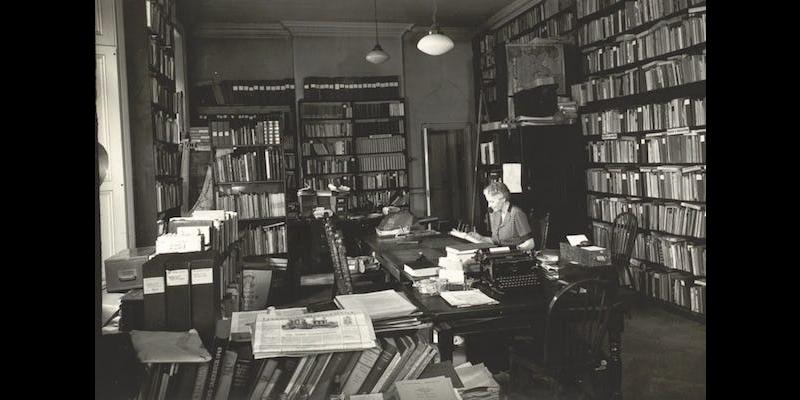The Refugee Map represents part of The Wiener Holocaust Library's archives. This site includes a selection of our rich collections of Family Papers, including handwritten diaries, photo albums, identity and emigration papers, Red Cross letters and recorded interviews. These documents reveal and preserve the stories of the individuals and families that fled Nazi persecution and antisemitism in the years before, during and after the Second World War.
The Library currently has over 700 Family Papers collections and continues to actively build its archive through new acquisitions and donations. Many of these collections have been donated to the Library over the years by Jewish refugees and their families, who escaped antisemitic persecution by emigrating from Germany and other Nazi-controlled countries, including Poland, Austria and France. These refugees found temporary or permanent adopted homes across the UK and other countries.
(Description adapted from information on project website. Image credit: Wiener Holocaust Library Collections)
Subject Period (epoch)
Subject Continent(s)
Subject Country(ies)
Topic(s)
Subject Language(s)
Project Language(s)
Project Media
Project Access
Project Status
Project Creator Continent(s)
Project Creator Country(ies)
Project Creator City(ies)


The Refugee Map represents part of The Wiener Holocaust Library's archives. This site includes a selection of our rich collections of Family Papers, including handwritten diaries, photo albums, identity and emigration papers, Red Cross letters and recorded interviews. These documents reveal and preserve the stories of the individuals and families that fled Nazi persecution and antisemitism in the years before, during and after the Second World War.
The Library currently has over 700 Family Papers collections and continues to actively build its archive through new acquisitions and donations. Many of these collections have been donated to the Library over the years by Jewish refugees and their families, who escaped antisemitic persecution by emigrating from Germany and other Nazi-controlled countries, including Poland, Austria and France. These refugees found temporary or permanent adopted homes across the UK and other countries.
(Description adapted from information on project website. Image credit: Wiener Holocaust Library Collections)
